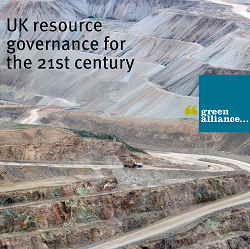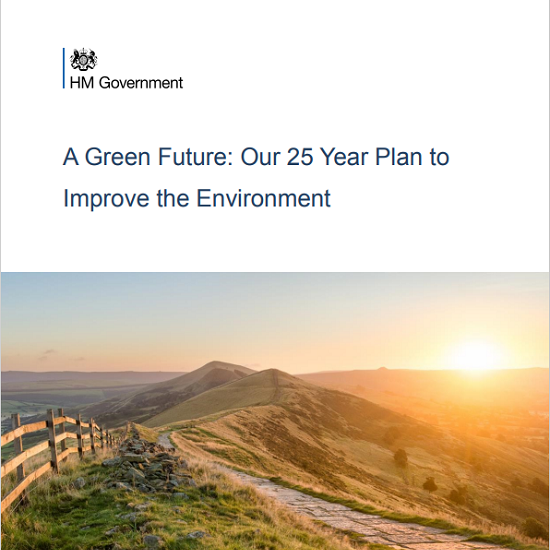UK resource governance for the 21st century
2015, Green Alliance
High and volatile resource prices have been identified as one of the key macroeconomic trends of the 21st century. Such was the success of resource production in the 20th century that, in
the standard theory of economics, resource availability is simply assumed. But the sharp rise in resource price volatility since 2000 is a significant threat to economic and environmental stability, undermining businesses’ ability to plan ahead. The price inflation it causes also filters down to consumers, affecting the cost of living.
The government can help to mitigate these risks and departments have the necessary policy levers at their disposal. But there has been a conspicuous lack of support to improve resource security in the UK, compared with other major manufacturing economies. This has led to questions about whether there is an effective framework for developing resource policy within central government, especially in the light of other high profile government decisions which
undermine resource policy objectives. Perhaps most damning of these is the Treasury’s lack of support for a review of resource risk following a National Security Council discussion
in 2012.
Parliamentarians, business groups and NGOs have all put forward proposals for new government institutions to improve the management of resource policy as a strategic priority. The cross-party political interest in this issue raises the stakes for the next government, so it’s important to understand the different options for better governance of resource policy.
In this report, we analyse the range of potential institutional arrangements available and we assess their strengths and weaknesses. Our conclusions draw on the results of published research and our own programme of expert interviews and discussions.
Well formulated institutional structures would decrease the likelihood of unforeseen crises and hasty, poorly thought through policy responses. In a political context characterised by the need to reduce government expenditure and deliver growth, better institutions can help politicians to balance long term challenges and short term priorities. The right governance framework is a necessary condition for the development and delivery of effective resource policy. The economy will benefit from higher productivity and job growth. Businesses will benefit from new opportunities and improved competitiveness in the global market. And we will all benefit from the preservation of natural capital.
To develop effective resource policy, the government needs institutions with dedicated information gathering and analytical capabilities, and effective co-ordination across a wide range of policy areas and instruments. But, above all, strong political support is necessary. We therefore propose that a National Resources Council (NRC) is set up to channel political interest into cross-government action. This would bring together ministers from relevant departments across government, supported by a parallel working group of officials. This approach works well for defence in the form of the National Security Council (NSC).
As current information on resources is dispersed and poorly collated, an early act of the NRC should be to institute an independent review of the UK’s exposure to resource risks. This would draw upon expertise from business and academia to identify where the government should prioritise action. It would determine where further information is required and how to secure it, and it should develop a framework for assessing when and what future interventions are needed.
Other options considered in this report have the potential to play a useful role, especially for detailed analysis and policy development. But the combination of a standing committee and independent review of resource risk has the greatest potential to translate the current political interest in resources into an enduring and strategic approach to developing resource policy.







